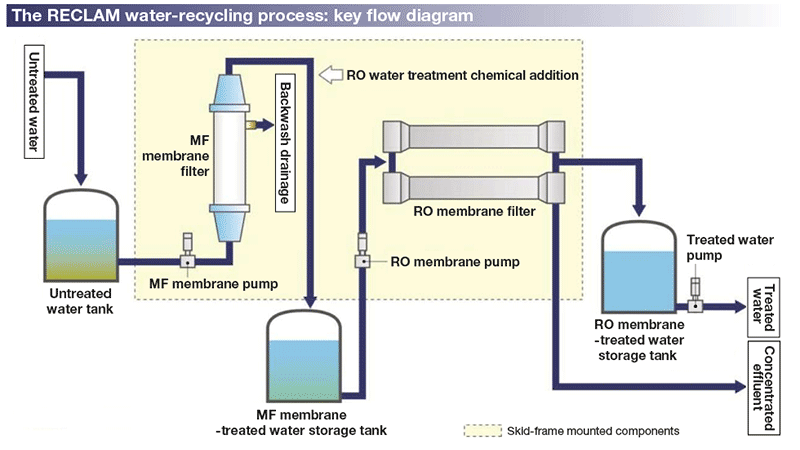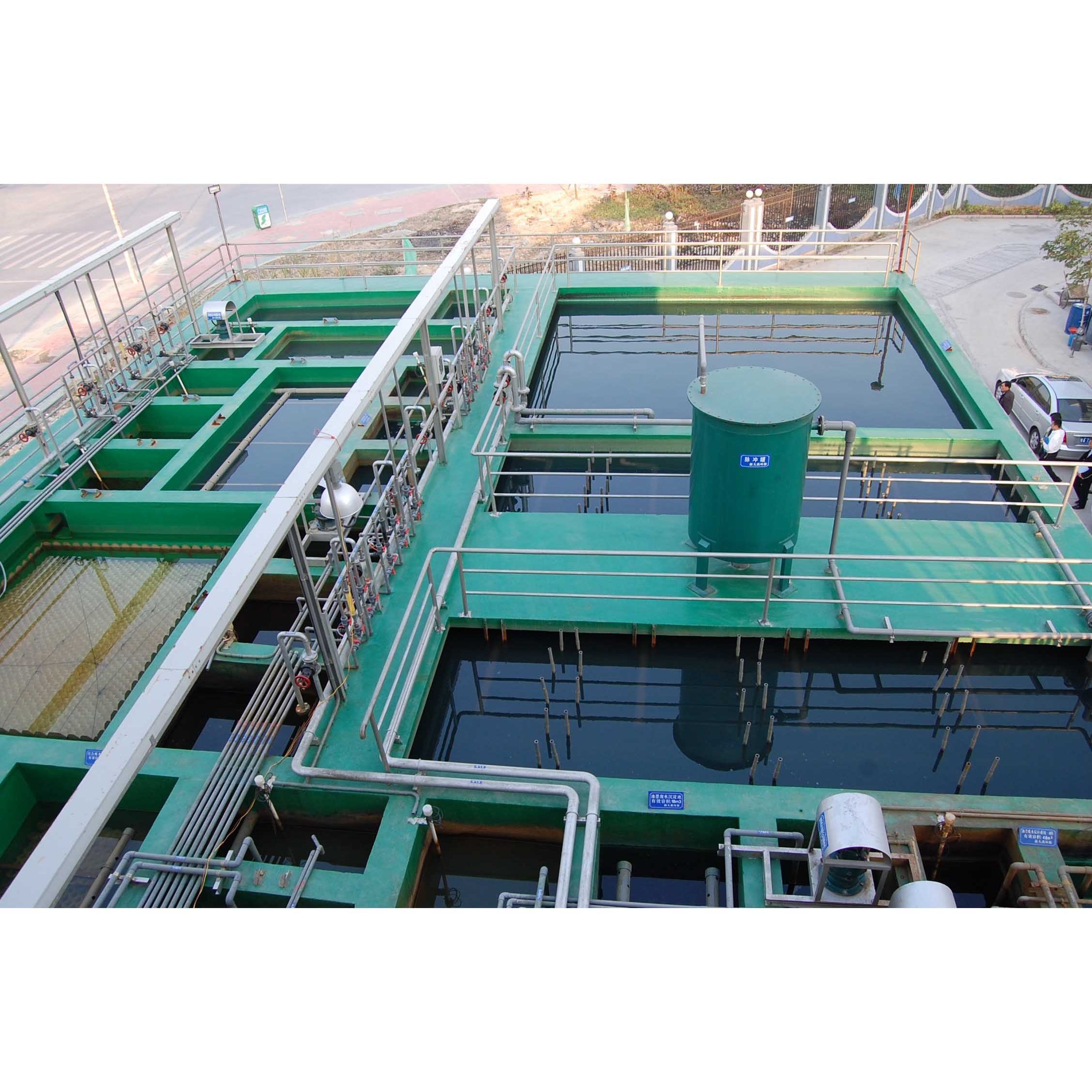Industrial Waste Water Treatment-- Effective Waste Management for Manufacturing Facilities
The Role of Industrial Waste Water Treatment in Environmental Protection
The effective therapy of industrial wastewater is significantly recognized as a cornerstone of environmental protection, serving to reduce the damaging influences of pollutants on aquatic environments. As sectors develop and expand, the need for robust wastewater monitoring services ends up being critical to ensure conformity with ecological policies and promote lasting techniques.
Value of Drainage Therapy
The value of wastewater therapy can not be overemphasized, as it plays a vital function in protecting public health and the setting (Industrial Waste Water Treatment). Effective wastewater treatment systems are essential for eliminating impurities from industrial discharge, consequently stopping dangerous substances from getting in natural water bodies. This procedure lessens the risk of waterborne diseases, which can occur from without treatment wastewater, and safeguards community wellness
Additionally, dealt with wastewater can be securely recycled in various applications, such as irrigation and industrial processes, advertising sustainable water management methods. By recycling water, industries can dramatically lower their freshwater consumption, adding to source preservation.
In enhancement to health and wellness benefits, wastewater treatment is crucial for protecting water ecological communities. Contaminants in without treatment wastewater can cause the deterioration of water high quality, hurting aquatic life and disrupting environmental balances. By treating wastewater before discharge, industries help maintain the honesty of local environments and advertise biodiversity.
Furthermore, regulatory compliance is a key aspect of wastewater management. Complying with recognized environmental standards not just stays clear of lawful repercussions however likewise enhances a business's track record as an accountable corporate citizen. Fundamentally, effective wastewater treatment is indispensable for securing public health, protecting the setting, and advertising lasting industrial techniques.

Sources of Industrial Waste Water
Industrial wastewater stems from a selection of sources, each contributing to the intricacy of therapy procedures. Primarily, these sources consist of producing centers, refineries, and handling plants, which produce effluents as a byproduct of their procedures. Industries such as fabrics, drugs, food and beverage, and petrochemicals generate substantial volumes of wastewater, commonly loaded with contaminants including heavy metals, organic substances, and nutrients.
In enhancement to manufacturing, farming activities add to industrial wastewater with drainage and effluent from livestock procedures and crop processing. The meat and dairy products sectors, particularly, are known for releasing high degrees of biochemical oxygen need (BODY) and microorganisms.
Moreover, mining and mineral processing activities produce wastewater including suspended solids and hazardous chemicals. Power generation plants, especially those using fossil fuels, likewise contribute wastewater via cooling down systems and chemical cleaning procedures.
Each of these resources presents unique challenges pertaining to the structure and volume of wastewater generated, necessitating customized treatment options to mitigate their environmental impact. Understanding the diverse origins of industrial wastewater is important for establishing reliable administration approaches targeted at securing water resources and advertising lasting commercial practices.
Treatment Procedures and Technologies
Efficient treatment processes and innovations are essential for managing industrial wastewater and alleviating its ecological effect. Numerous methods are utilized to get rid of pollutants, adjust to various wastewater features, and abide by regulative criteria.
Physical treatment procedures, such as sedimentation and purification, assist in the removal of put on hold solids. These approaches are frequently made use of as preliminary steps to minimize the tons on subsequent treatment phases. Chemical therapy, including flocculation, neutralization, and coagulation, addresses liquified pollutants by altering their chemical homes, making them easier to divide from water.
Organic treatment modern technologies, such as turned on sludge systems and biofilters, use microbes to break down raw material and nutrients. These approaches are specifically effective for biodegradable waste streams, promoting the natural decay procedure. Advanced therapy technologies, such as membrane layer purification and advanced oxidation procedures, deal improved removal efficiencies for tough pollutants, consisting of hefty steels and relentless natural substances.
Each of these therapy processes can be set up in numerous mixes to produce tailored options that satisfy specific industrial demands. The option of technology depends on aspects such as the kind of wastewater, preferred therapy outcomes, and economic considerations, making sure that industries can operate sustainably while decreasing their ecological impact.
Ecological Benefits
Carrying out durable wastewater therapy refines not only guarantees compliance with regulative criteria however additionally generates substantial ecological benefits. Effective treatment of industrial wastewater lowers the discharge of hazardous contaminants into natural water bodies, thereby securing aquatic ecosystems. By removing poisonous materials, hefty metals, and virus, these procedures help keep biodiversity and advertise healthier communities.
In addition, treated wastewater can be repurposed for various applications, link consisting of irrigation and industrial procedures, decreasing the demand for fresh water resources. This reuse not just conserves water yet likewise decreases the stress on regional water supplies, which is especially critical in water-scarce regions.
In addition, reliable wastewater treatment mitigates the danger of dirt and groundwater contamination, making sure the integrity of regional environments. Industrial Waste Water Treatment. By stopping the infiltration of dangerous materials, markets add to the overall health of surrounding communities and communities, boosting public count on and promoting lasting commercial practices
Regulatory Framework and Compliance
A detailed regulatory structure governs the therapy of industrial wastewater, making sure that sectors follow strict compliance criteria. Various nationwide and local guidelines, such as the Clean Water Act in the United States, established forth limits on the discharge of toxins into water bodies. These regulations are created to protect water ecological communities and public health and wellness by mandating that markets implement appropriate therapy technologies.
Conformity with these regulations usually involves getting permits, performing normal Go Here tracking, and reporting discharge levels to governing authorities. Failing to conform can result in significant penalties, consisting of fines and functional restrictions, consequently incentivizing sectors to take on best techniques in wastewater management.
Along with governmental laws, many sectors likewise comply with voluntary standards and qualifications, such as ISO 14001, which promote lasting ecological monitoring methods. Stakeholders are progressively supporting for improved transparency and accountability in wastewater monitoring, pushing for stricter enforcement and even more strenuous coverage demands.
Eventually, a durable regulatory structure not just serves to reduce environmental threats but likewise fosters a society of sustainability within the industrial field, motivating continual renovation in wastewater therapy procedures.
Conclusion

The reliable treatment of commercial wastewater is progressively recognized as a keystone of ecological security, serving to minimize the harmful effects of toxins on aquatic communities. Reliable wastewater treatment systems are necessary for getting rid of contaminants from commercial discharge, consequently stopping unsafe materials from entering all-natural water bodies.Industrial wastewater originates from a variety of resources, each adding to the intricacy of treatment processes. Efficient treatment of commercial wastewater decreases the discharge of hazardous pollutants into natural water bodies, thus shielding water communities.In conclusion, industrial wastewater treatment is vital for securing environmental stability and promoting sustainable water management.